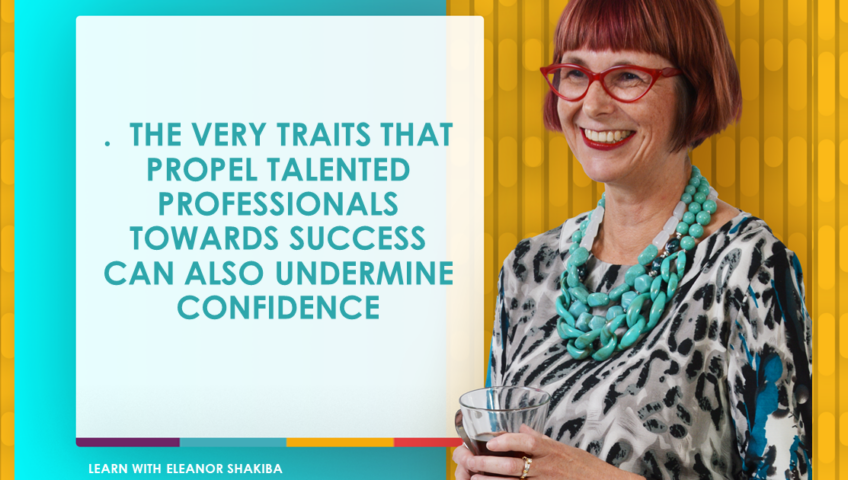Have you ever wondered why so many high achievers have low confidence? Or why imposter syndrome seems to be the flipside of talent? Well, there’s a simple explanation. The very traits that propel talented professionals towards success can also undermine confidence. For example, most high achievers have exceptional levels of self-discipline. But that can mean they never take breaks – which is a guaranteed way to burn out and destroy your confidence. In fact, I’ve seen so many talented professionals fall into this trap that I’ve made it my mission to help. That’s why I created the Complete Confidence Lab, which is enrolling now.
In the Complete Confidence Lab, I explain three paradoxical thinking patterns which can snare you in a cycle of imposter syndrome and low confidence. Do you relate to any of them? I sure do!
The competence myth
This is the belief that you can’t be confident unless you know how to do everything. Think about it. That’s an impossible standard to live up to. If you believe the competence myth, chances are you ‘re constantly comparing yourself to others and finding yourself lacking. Obviously, that’s one of the fastest ways to destroy your confidence. So, stop equating competence and confidence. They’re not the same thing.
Free e-book and video tips.Get your copy today!
|
|
The control myth
Have you ever been told you’re too controlling? Or do you joke about being a control freak? If so, you’re probably under the spell of the control myth. This is the belief that being in control will make you feel confident. But here’s the truth – nobody can control everything. Trying to do so will only lead to stress and anxiety, not confidence. It’s time to explore how genuinely self-assured people tackle life. Spoiler alert: it’s all about learning to thrive in uncertainty.
The high standards myth
Yikes. This one is tricky to beat. That’s because having standards is so strongly associated with success. And it’s true that high standards are great… up to a point. However, too much of a good thing can be damaging. It leads to perfectionist overworking and constant self-criticism. Both of which feed imposter syndrome.
Do these thinking patterns sound familiar? If so, you’d be a great candidate for the Complete Confidence Lab. Check it out here and join me in breaking free from imposter syndrome and building lasting confidence.
This article was created by Eleanor Shakiba
Eleanor is a leadership trainer and success coach. Her mission is inspiring talented people to become leaders who make a difference. Since discovering her passion for training and development, Eleanor has trained more than 60,000 people. She delivers face-to-face workshops for corporates, online masterclasses for leaders and Positive Psychology retreats for trainers, HR practitioners and leaders.

